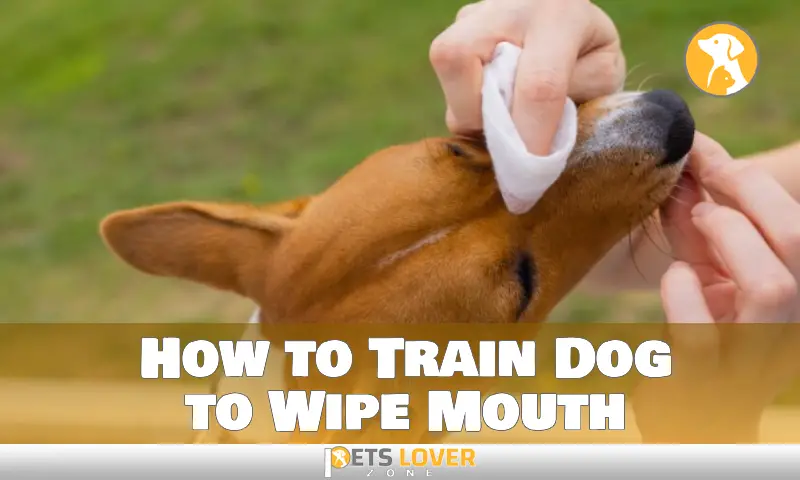Potty training a Rhodesian Ridgeback Puppy may seem daunting at first, but don’t worry, it’s not as hard as it seems.
Rhodesian Ridgebacks are intelligent and eager to please, making them great candidates for successful potty training. However, like all puppies, your Rhodesian Ridgeback will need guidance and patience from you in order to learn this important life skill.
This guide will provide you with an overview of the potty training process and give you the tips and tricks you need to successfully train your puppy. We will look at establishing a routine, providing positive reinforcement, and setting up clear expectations and boundaries. We’ll also discuss how to handle set-backs without getting frustrated so that both you and your puppy can reap the rewards of successful potty training.
Understanding the Potty Training Basics
It’s crucial to keep in mind that potty training is a learning process and that it takes time. It’s crucial to persevere even on your bad days because you’ll both experience them. Positive reward, consistency, and patience are essential for a successful potty training program.
As soon as your puppy or adult dog is prepared, you should begin toilet training them. Get your house ready before you start the process; you’ll need a special spot for your dog to relieve himself as well as rewards for good behavior. It depends on the individual pup whether they respond better to little rewards or like a good belly rub.
Supervision is key during potty training. Providing consistent guidance helps your pup understand what they should (and shouldn’t) do while they are learning where they should go to the bathroom. It’s also important to never punish them if they make a mistake—positive reinforcement is always best.
Establishing a Potty Training Schedule
Consistency is essential when toilet training your Rhodesian Ridgeback puppy. Establishing a potty training timetable and sticking to it will help instill potty-time habits in your puppy’s thinking. For the first few weeks, start by bringing them outside to the designated potty area at least every 45 to 90 minutes, including during the night. Puppies need to be let outside right after eating, when they get up from naps, and after any playing or exercise.
It’s also important to create a schedule for your pup with times to eat, play, and do business. Regulating your pup’s activities can help give them a sense of routine that they can learn to anticipate and respond to without fail. Puppies generally start to grasp these potty time habits between 12 and 18 weeks of age, so be sure you’re consistent with your training methods during this time period.
Develop a Positive Reinforcement System
Your Rhodesian Ridgeback puppy can be potty trained through positive reinforcement training. It entails giving incentives for the behaviour you want to promote. These incentives should be given right away after the desired conduct, as this strengthens the mental link between the behavior and reward.
Positive reinforcement activities can explore fundamental aspects of positive psychology, such as building self-confidence and feeling secure in their environment. The rewards themselves should be meaningful to your puppy, so think of things they enjoy – such as treats or playtime – and use those to reward them for going potty in the right spot.
Take some time to observe the reward preferences of your pup and make sure you customize the rewards provided based on their unique needs. You may also need to adjust how often you provide rewards as they become more accustomed to going outside and learn what is expected of them – once they have mastered it, you can slowly phase out your rewards system.
The 4 d’S of Potty Training
Potty training a Rhodesian Ridgeback puppy can be done with patience and commitment. The 4 d’s of potty training should be followed when teaching a puppy to eliminate on command:
- Determine – Determine the size and breed of your puppy to determine the ideal potty spot. Smaller puppies will have smaller bladders and need to go more often than larger breeds such as Rhodesian Ridgebacks.
- Designate – Designate a spot in the yard or house that will serve as the potty spot for your puppy. This is best identified before beginning the training process, as it will ensure consistency during potty breaks.
- Dedicate – Dedicate certain times each day for your pup’s elimination breaks, preferably just after a meal or nap, and at regular intervals throughout the day or night, if needed. This will help establish your pet’s body’s natural schedule and predictability, so they know when they need to go outside.
- Discourage – Discourage any pottying away from the designated areas by using verbal cues (such as “no!”) and redirecting them back to their designated area if necessary. Positive reinforcement with treats or praise is also an effective way to discourage unwanted behaviors and encourage desired behaviors for successful potty training.
Addressing Potty Training Challenges
Potty training a Rhodesian Ridgeback puppy may require some extra effort and patience, but it can be done with the right tools and consistent training methods. Here are two tips to help you overcome common potty training challenges:
Consistency
With positive reinforcement, your Rhodesian Ridgeback puppy will quickly learn what is expected of them. It’s important to keep up with a regular potty routine – taking your puppy out after meals, when they wake up, and during times of increased activity will help them understand where they should be relieving themselves.
Patience
Small breeds typically take longer to potty train than larger breeds. So don’t expect any overnight successes – your puppy needs time to learn and succeed; be sure to give them the support they need! Taking frequent breaks from training can also help minimize stress and ensure that your pup does not become overwhelmed.
Celebrating Successful Potty Training
Potty training is an important milestone, and the successful completion should be rewarded! There are numerous ways to help celebrate the start of your pup’s independence in regards to pottying.
Potty Training Parties
The perfect way to recognize this new level of success is by hosting a potty training party. Invite puppy friends over for a special gathering; you can even incorporate games such as Diaper Toss and Potty Pedis. Not only will your puppy have loads of fun with their furry friends, but they’ll appreciate being rewarded with treats.
Rewards
When it comes to celebrating success, rewards can prove remarkably helpful. Place a treasure chest full of exciting dog toys on the toilet to make it more attractive for your pup to use. Whenever they go potty in the right spot, give them a treat or toy as a reward so that they associate going potty in that spot with positive reinforcement – always be sure to give them lots of praise too!
Potty Training ‘Cake’
Making a potty training “cake” out of your dog’s favorite nutritious treats is another fantastic way to commemorate this significant accomplishment. Your dog will understand that all of these delicious treats are for them and their successful journey through toilet training if you arrange them in the shape of a cake and sing “happy birthday.”
People Also Like: How to Feed a Pitbull Puppy for Maximum Growth Ultimately
Conclusion
Potty-training a Rhodesian Ridgeback puppy is no easy task, but it is an achievable one. Your patience and consistency will pay off, and you will eventually be able to enjoy a clean, accident-free home. By following the steps outlined in this blog post, you can provide your puppy with clear boundaries and expectations. Just remember to keep your goals realistic and do not forget to provide your puppy with plenty of positive reinforcement. This will ensure your puppy learns good potty habits and that you both enjoy a successful and rewarding relationship.






